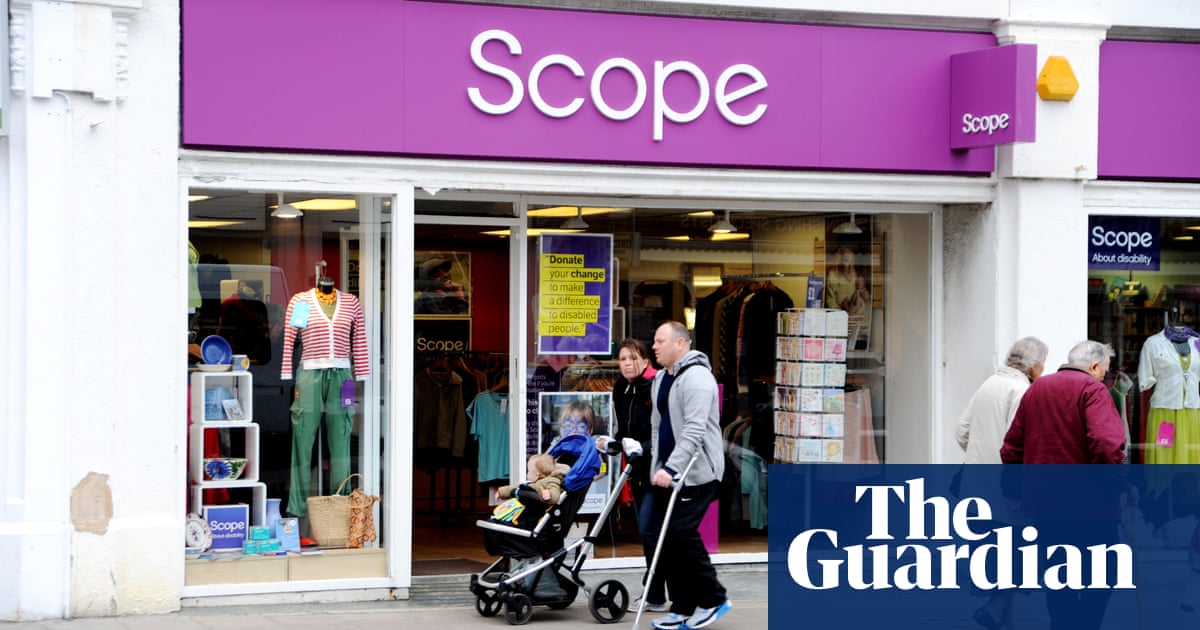Scopeexpects to cut more than a fifth of its staff this year amid mounting financial pressures, with about a third of those affected to be disabled employees.
The disability charity announced a consultation last week over plans to place 124 of its 326 corporate roles at risk of redundancy, a move likely to result in about 70 job losses in the summer.
Mark Hodgkinson, the charity’s chief executive, said the proportion of disabled staff whose roles were at risk was slightly higher than those of non-disabled workers. He said Scope was committed to ensuring disabled staff, who make up a third of its workforce, were not disproportionately affected.
Hodgkinson said: “Our absolute commitment is to ensure that the actual number of roles lost is proportionate to the makeup of Scope’s workforce overall.”
The redundancies follow a January announcement that Scope would close 77 of its 138 charity shops this financial year., resulting in the loss of about 200 of its 458 retail staff. About 14% of those employees have a disability.
The cuts have prompted campaigners to raise concerns about Scope’s capacity to serve as a strong national advocate, especially when the government’s overhaul of welfare payments will result in an estimated 1.2 million disabled peoplelosing eligibility for personal independence payments.
Tom Shakespeare, professor of disability research at the London School of Hygiene and Tropical Medicine, said: “Just when individual disabled people might need advocates, a major voice is fighting for survival. I think it’s a real problem because it’s not as if Scope’s role has been taken up by a new generation of disability rights organisations. There isn’t a strong voice for disabled people. They’re all dwindling.”
Hodgkinson acknowledged the cuts would lead to a narrowing of the charity’s focus. However, he said more resources would be put into major priorities such as challenging benefit cuts, tackling social attitudes toward disability and improving employment support.
“We want to be as strong as possible in terms of having the most focused impact on those areas where we think disabled people are maybe most at threat at the moment,” he said. “We’re creating new roles as well as exiting existing roles.”
He said the charity wanted to “take great care” of its staff who do lose their jobs in its restructuring. “We’ve already committed to provide much stronger post employment support to try to ensure that people can get advice on finding new opportunities.”
Combined, the corporate and retail redundancies are projected to save about £5.8m over the financial year.
Hodgkinson said the charity, which has been operating at a deficit for the past four years, had been hit hard financially by the pandemic, inflation and the rising cost of living, and national insurance increases for employers. Forecasts showed its retail operations would make a loss of £1.5m in 2025-26.
Scope’s cuts follow a wave of redundancies across the charity sector. In February, Macmillan Cancer Supportaxed a quarter of its staff, downgraded its helpline and scrapped its flagship financial hardship scheme, while Save the Children UKannounced plans to make 197 roles redundant.
Sarah Elliott, chief executive of theNational Council for Voluntary Organisations, said many charities are being forced to make difficult decisions.
She said: “This isn’t just a crisis for charities. It’s a crisis for the communities who rely on them. Without meaningful support, vital services risk disappearing when they’re needed most.”
